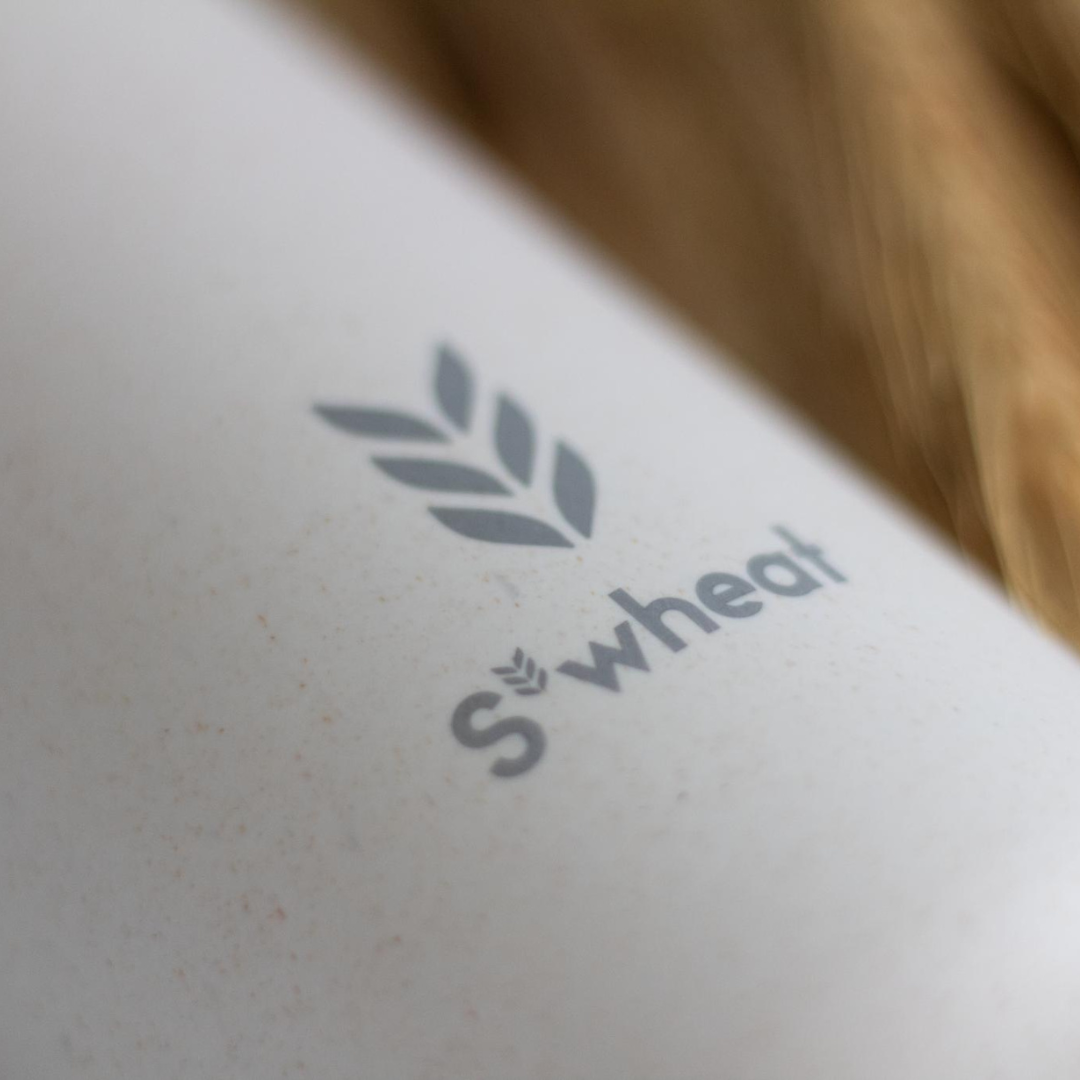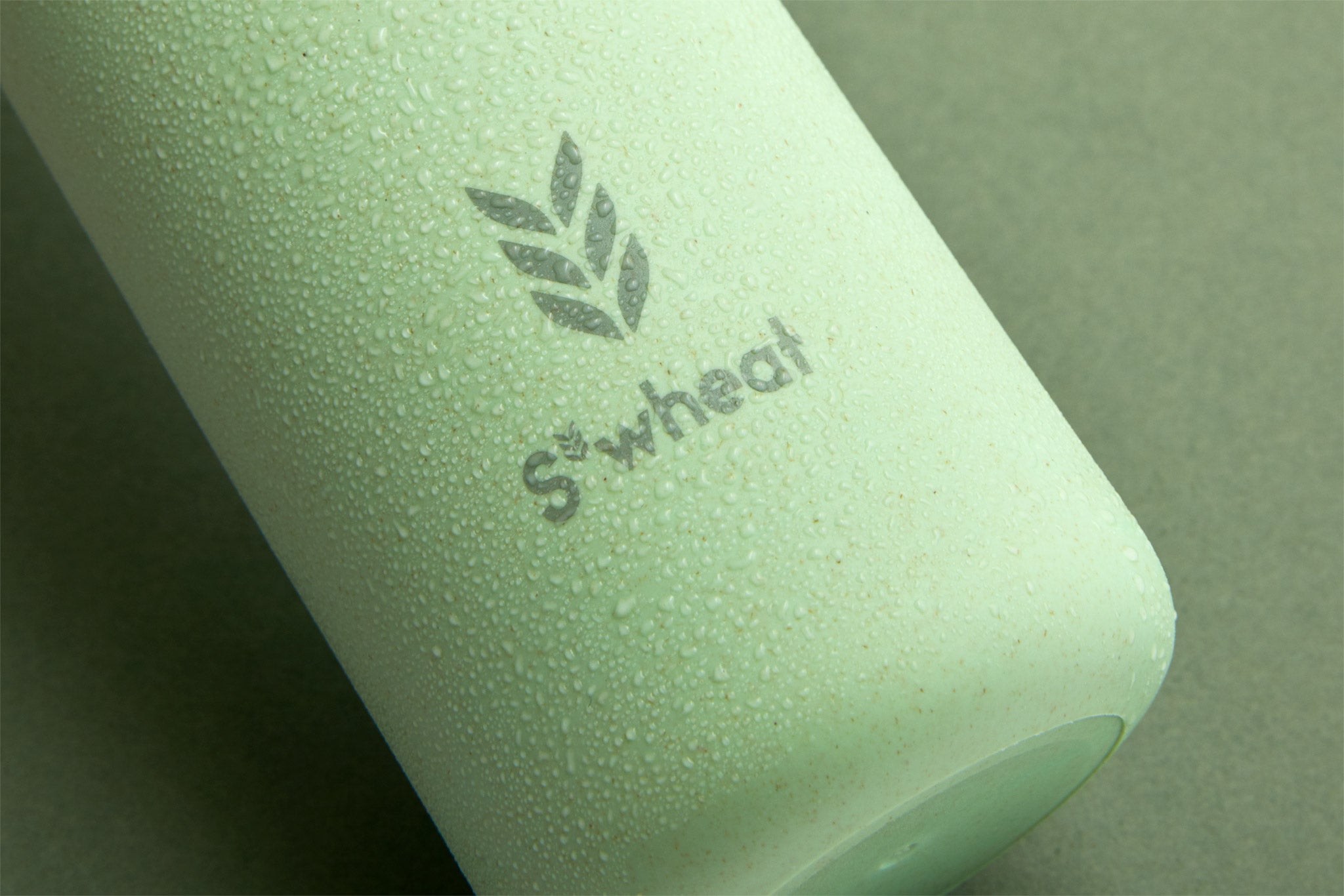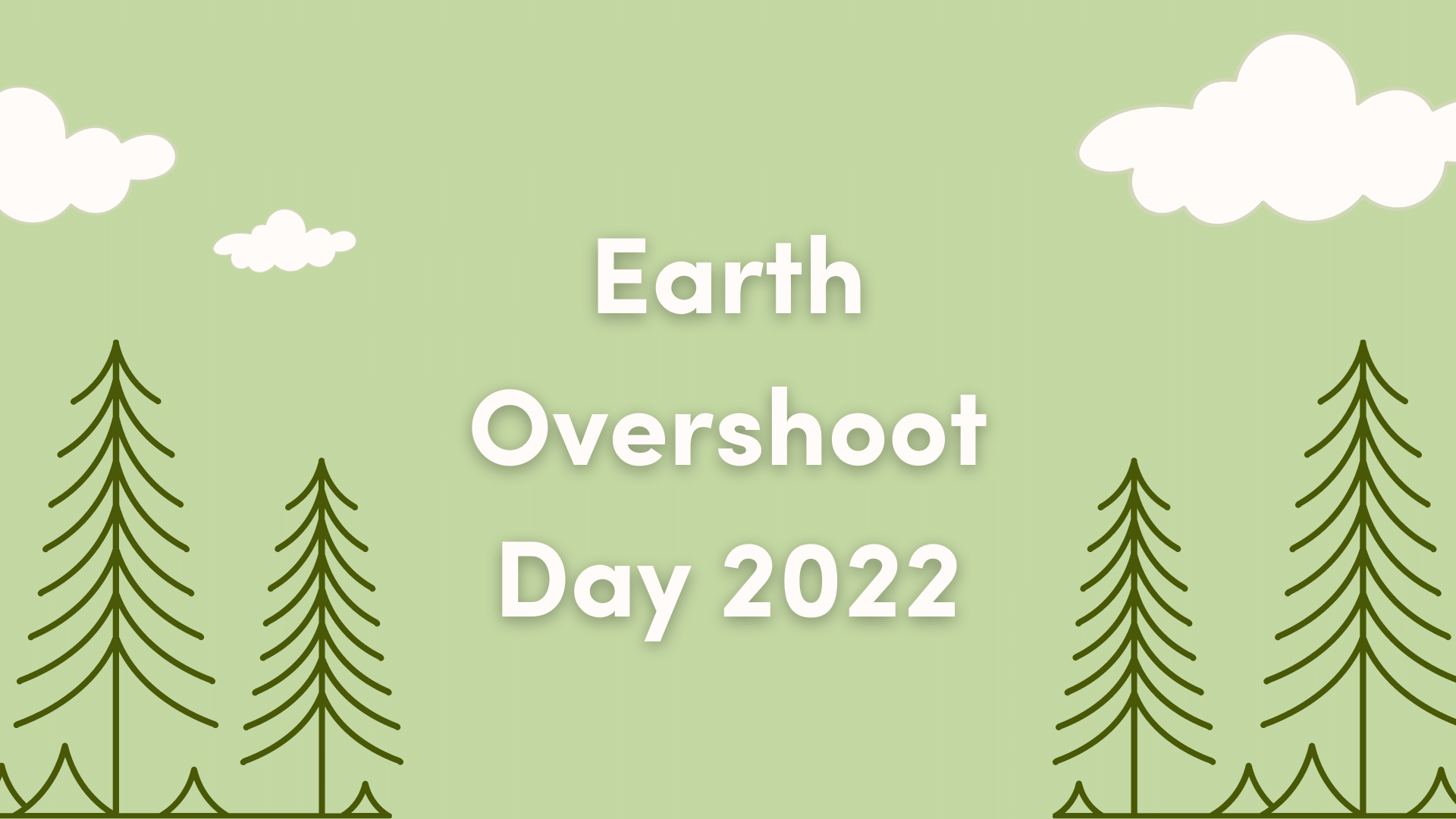Energy & emissions in plastic
It was discovered that the output of hazardous pollutants and greenhouse gas emissions that are released during the production and incineration of plastics exceeded 850 tonnes in the year 2019. Plant-based materials produce far less greenhouse gases during manufacturing than fossil fuel based plastics, and even materials that are marketed as sustainable can be deceptively energy intensive to manufacture. Plastic derived from crude oil eats up a whopping number of somewhere between 62-108 MJ per kilogram during production, which is why alternative materials for items including drinks bottles such as stainless steel became so popular around this time.
Energy & emissions in plastic alternatives
Although an improvement from plastic, even steel still uses between 20-50 MJ per 1kg and releases toxic materials and carcinogens in the process of heating and extraction. Glass is often used as a sustainable alternative to plastic bottles, however this isn’t ideal practicality wise, particularly for physical activity and outdoor use as they are very easy to smash, and still use up 18-35 MJ to make one kilogram. A manufacturer of polylactic acid bioplastic (PLA) has concluded that replacing energy intensive material like traditional petroleum based plastics with plant-based PLA can reduce wasteful consumption of fossil fuels by 68%.
Wheat straw
The unique S’wheat material is made from a natural blend of bamboo fibre and wheat stalks. To maintain our commitment to a circular economy, we wanted to find a material that requires as little new materials to be manufactured as possible. This led us to discover the innovative, renewable properties of wheat straw, which is a by-product of wheat that is either fed to horses, left to biodegrade, or incinerated, which releases unnecessary carbon emissions into the atmosphere in the process. Using a by-product of such a frequently harvested plant allows us to continue to offset any carbon emissions and keep our material as natural as possible.
Bamboo
Bamboo is renowned for its durability, so this was the perfect option to reinforce the longevity of our bottle. One of the most striking qualities of bamboo that makes it ideal for food and drink use, such as a reusable bottle, is its natural antimicrobial agent which gives it its inherent barricade against pests and antibacterial properties - which also means we can avoid using any unnatural chemicals or pesticides. This includes BPA, which has been found to disrupt the endocrine system and increase the risk of related illnesses, and melamine, which is what often makes “eco-friendly” products less biodegradable, as well as making materials unsuitable for microwave and dishwasher use.
We wanted our bottle to be as versatile as it could be, whether the drink is hot or cold, water, coffee, juice, or whatever drink you like so on top of the antibacterial qualities of the bamboo, our bottle lid fully unscrews to allow for easy cleaning so tastes and smells won’t stick to the bottle. This is one of the numerous benefits of the S’wheat material over other reusable bottles, which are often difficult to clean due to the narrow neck, can grow mould easily, and quickly begin to smell and taste unclean or metallic.
Bacteria
The average plastic sports bottle that is in regular use was found to be host to over 300,000 colony-forming units (CFU) per square centimetre, which is a unit that measures the number of viable bacteria on a surface. To put this into perspective, an average pet bowl was found to contain just below 50,000 CFU and a home toilet seat around 30,000 CFU. Even when made of the same material, specific types of plastic bottles can differ vastly in the accumulation of bacteria.
Straws seem to triumph in cleanliness here, most likely because water can’t collect as easily and therefore won’t remain damp enough to allow bacteria to multiply. The mouthpiece of plastic reusable bottles with a straw was just 25 CFU, whereas squeeze bottles and screw tops were host to more than six times the amount of bacteria. The mouthpiece of steel bottles, however, came out at a startling estimate of 900,000 CFU. This is likely due to the way steel absorbs and holds heat, creating a warm, damp breeding ground for bacteria to grow.
S’wheat’s impact
Our eco-friendly bottle is not only carbon neutral, it actually gives back to the earth, too. We chose wheat as the counterpart material to our sturdy, antibacterial bamboo fibre because it is a common by-product that is frequently harvested and put to waste, is naturally odour-free, lightweight and durable, gluten-free, food safe certified, and FDA approved. Wheat straw even absorbs carbon dioxide during photosynthesis, so by sourcing this from farmers we are providing them with additional income while actively removing carbon from the atmosphere. To further offset any carbon emissions and contribute to a positive environmental impact, S’wheat plants trackable native trees and removes plastic from our oceans.
S’wheat’s process
We create our plant-based bottles through a patented process called fiberising, which begins by extracting the starches from the plants, then processing and refining until they are ready to be poured into the moulds - this essentially entails stretching out the fibres of our material, compressing it, then repeating until it has become fully malleable. This is when it is poured into moulds where the bottle is formed.
Microplastics
The average single-use water bottle is said to take 1,000 years to biodegrade, but this isn’t really the case - plastic doesn’t ever really decompose, it simply breaks down into smaller particles and leaves behind many microplastics, which pollute the water and even end up in our drinking water. In fact, in a recent study, it was found that 80% of participants had microplastics in their bloodstream, along with plastic additives such as BPA, which is commonly found in plastic food containers and single-use water bottles. On top of this, it has been confirmed through several studies that microplastics and similar pollutants are growing increasingly prevalent in the air that we breathe, as well as in other organisms that may be ingesting plastic waste, particularly fish, which means that we are also ingesting them second-hand through the consumption of meat and fish.
Melamine
In contrast to petroleum-based disposable plastics, bioplastics have the potential to actually biodegrade, although not all do. This all depends on the manufacturer and whether they include certain additives. Plant-based plastics containing melamine cannot be recycled as it cannot be melted down. Melamine plastic is a melamine-formaldehyde resin that is known for its fire resistant properties, so if it is thrown away, it will not break down. This is also why food and drink products containing melamine, bioplastic or not, should never be microwaved or put into any high-temperature environment, as when in contact with heat (or even acidic food or drinks), the toxins begin to leak and contaminate your food or drink, causing you to ingest it.
Composting & biodegradability
This is why our plant-based bottles contain no melamine or other harmful chemicals. Even with daily use, the S’wheat bottle should last indefinitely, although we suggest 5-10 years as a normal lifespan. Once you’re done with your reusable bottle, if taken to an industrial composting facility it should biodegrade within 6-9 months. If your bottle is lost or thrown away, not to worry, it should biodegrade within just two years. Don’t worry about the bottle simply falling apart, though! The S’wheat bottle has a tensile strength three times as strong as a stainless steel bottle, so it will only break down when you want it to.
Want to find out more? Check out our other articles here.
Looking to work with us on co-branding or custom product partnerships? Fill out our enquiry form here.




Leave a comment
All comments are moderated before being published.
This site is protected by hCaptcha and the hCaptcha Privacy Policy and Terms of Service apply.